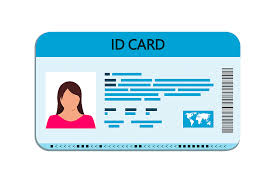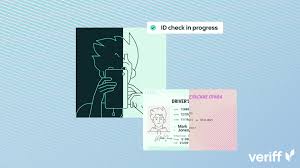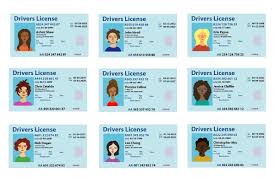Green Card
Introduction: What is a Green Card?
A Green Card, officially known as a Permanent Resident Card, is a document that grants an individual lawful permanent residency in the United States. It allows holders to live and work in the U.S. indefinitely, access various benefits, and eventually apply for U.S. citizenship. Understanding what a Green Card entails is crucial for anyone contemplating a long-term stay in the United States.
The Significance of a Green Card
Holding a Green Card offers numerous advantages that make it a highly sought-after status:
- Permanent Residency: Enjoy the right to live and work in the U.S. without any restrictions.
- Access to Benefits: Green Card holders can utilize various government benefits, including healthcare and education.
- Pathway to Citizenship: After holding a Green Card for a specific duration, you may become eligible to apply for U.S. citizenship.
How to Obtain a Green Card
Step 1: Determine Your Eligibility
Before applying for a Green Card, you must establish your eligibility. There are several categories under which you may qualify:
- Family-Based Green Card: For individuals with close relatives who are U.S. citizens or permanent residents.
- Employment-Based Green Card: For individuals with job offers or specific skills that are in demand in the U.S.
- Diversity Visa Lottery: A program for individuals from countries with low immigration rates to the U.S.
Step 2: Choose Your Application Process
The application process can vary based on your eligibility category:
- Family-Based Applications: Generally involve submitting Form I-130, Petition for Alien Relative.
- Employment-Based Applications: Typically require Form I-140, Immigrant Petition for Alien Worker.
- Adjustment of Status: If you are already in the U.S., you will need to submit Form I-485 to adjust your status to permanent residency.
Step 3: Gather Required Documentation
Having the necessary documentation ready is vital for a successful application:
- Proof of Identity: Passport, birth certificate, or a government-issued ID.
- Eligibility Evidence: Documents demonstrating your family relationship or employment.
- Medical Examination: Form I-693, Report of Medical Examination and Vaccination Record, is often required.
Step 4: Submit Your Application
Once you have completed the necessary forms and gathered documentation, it’s time to submit your application:
- Online Submission: Many applications can be submitted online through the USCIS website.
- Mail Submission: Others may need to be mailed to the appropriate USCIS office.
Step 5: Attend Your Interview
Most applicants will be required to attend an interview as part of the application process. Be prepared to answer questions regarding your application, background, and your intentions in the U.S.
Benefits of Holding a Green Card
Obtaining a Green Card brings numerous benefits:
- Job Flexibility: Work for any employer in the U.S. without needing a work visa.
- Educational Opportunities: Access to in-state tuition rates at public colleges and universities.
- Travel Freedom: Enjoy more lenient travel restrictions compared to visa holders.
User Experiences: Feedback on the Green Card Application Process
Hearing from individuals who have undergone the application process can provide valuable insights:
- Positive Experiences: Many applicants report a smooth process when they are well-prepared and organized.
- Challenges Faced: Some encounter delays or complications due to missing documentation or misunderstandings of the process.
Key Considerations When Applying for a Green Card
Before you start your application, keep these considerations in mind:
- Application Timelines: Processing times can vary based on application category and the workload at USCIS.
- Legal Assistance: Consider hiring an immigration attorney to help navigate complex cases.
Specifications for the Green Card Application
Here are some specifications related to the Green Card application:
- Processing Times: Can range from several months to several years, depending on the category.
- Validity: Green Cards are generally valid for 10 years and must be renewed.
Comparing Different Green Card Categories
Understanding the differences between various application categories can help you choose the best path:
- Family-Based vs. Employment-Based: Family-sponsored Green Cards often have faster processing times.
- Diversity Lottery: This provides another path for obtaining a Green Card, but it is based on chance.
Target Audience for the Green Card
The Green Card application process is designed for:
- Individuals Seeking Permanent Residency: Those who want to establish their life in the U.S.
- Families of U.S. Citizens: Immediate relatives of citizens who qualify for sponsorship.
- Skilled Workers: Individuals with specific skills that are in demand in the U.S. labor market.
After-Sales Service and Support
Once you receive your Green Card, there are ongoing support resources available:
- USCIS Resources: The USCIS website provides resources for Green Card holders, including how to renew your card.
- Legal Support: Immigration attorneys can offer assistance with maintaining your status and any future applications.
Shipping Information for Green Cards
Understanding how your Green Card will be delivered is essential:
- Delivery Method: Green Cards are mailed directly to your registered address.
- Privacy Measures: Cards are sent in discreet packaging to protect your personal information.
Psychological Value of Obtaining a Green Card
Acquiring a Green Card can have significant psychological benefits:
- Sense of Belonging: Holding a Green Card can provide a sense of security and belonging in the U.S.
- Empowerment: Successfully navigating the application process enhances confidence and personal agency.
Frequently Asked Questions (FAQs)
What is the process for obtaining a Green Card?
- The process involves determining eligibility, gathering documentation, submitting an application, and attending an interview.
How long does it take to get a Green Card?
- Processing times vary but can range from a few months to several years.
Can I work while my Green Card application is pending?
- If you have a valid work permit, you can work while your application is being processed.
What happens if my Green Card application is denied?
- You may appeal the decision or reapply, depending on the reason for denial.
Is there a fee to apply for a Green Card?
- Yes, there are fees associated with the application process, which vary by category.
Conclusion
Navigating the process of obtaining a Green Card is essential for anyone seeking permanent residency in the United States. By understanding the steps involved, gathering necessary documents, and being aware of potential challenges, you can streamline your application experience. With proper preparation and support, obtaining your Green Card can be a rewarding journey, opening doors to numerous opportunities and benefits for you and your family.
 How to Get a Social Security N
How to Get a Social Security N
 US Green Card
US Green Card
 Green Card
Green Card
 Safe Places to Use Fake IDs: W
Safe Places to Use Fake IDs: W